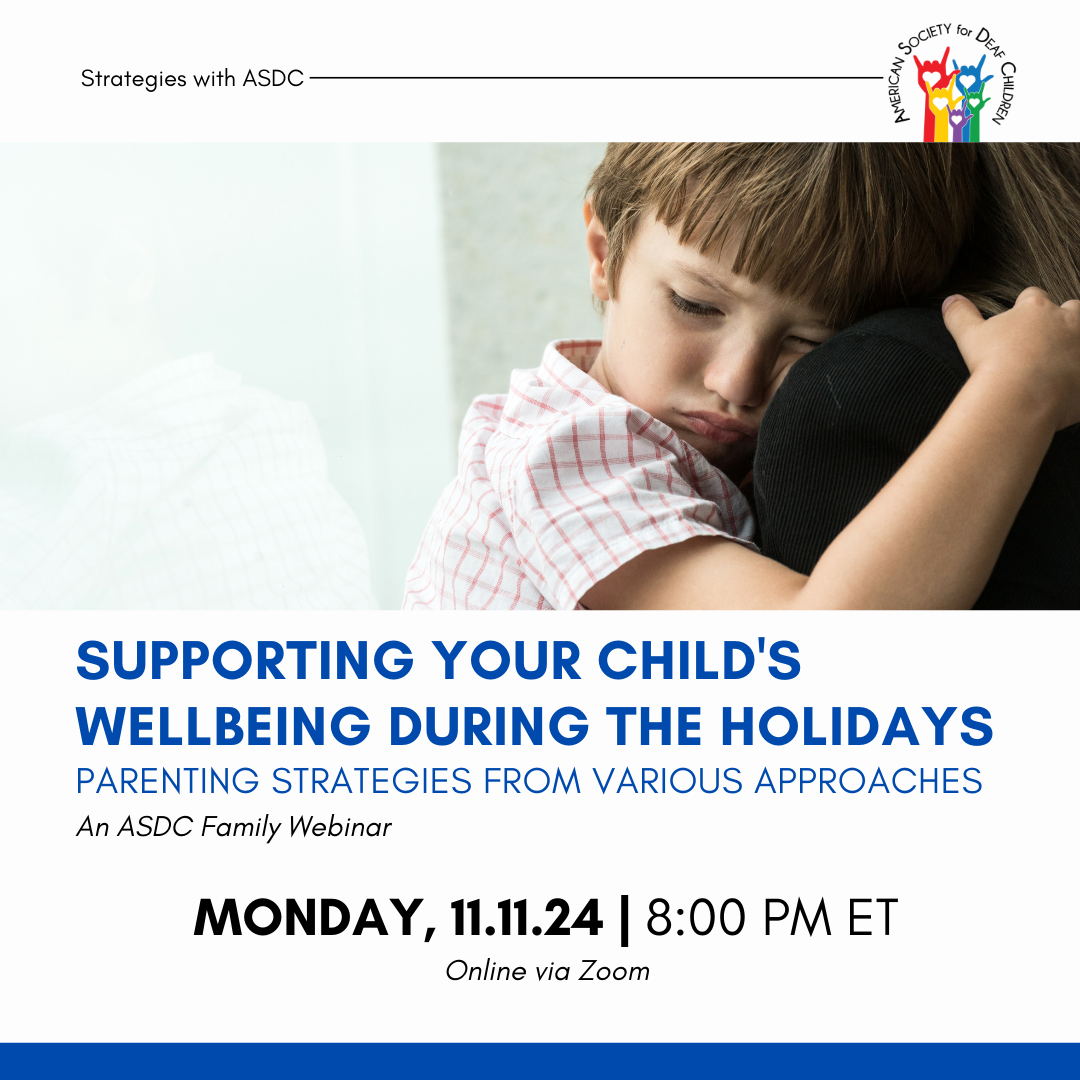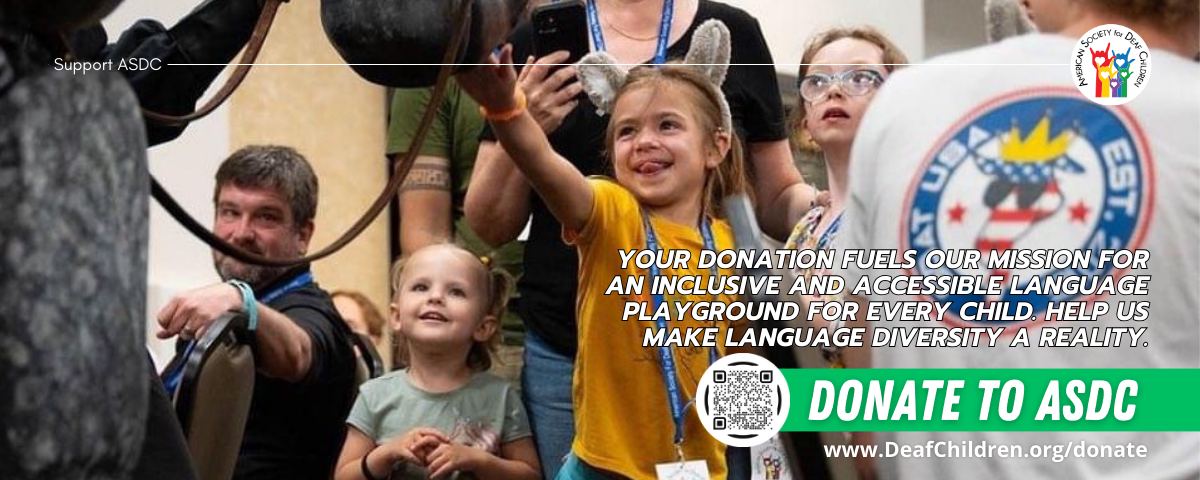The holidays bring a season of togetherness and joy, but they can also introduce challenges for Deaf or Hard-of-Hearing (D/HH) children who may feel left out or overwhelmed in busy environments. As a parent, you can play a key role in making this time of year inclusive and enjoyable for your child. Below are practical strategies to create a holiday season where everyone feels seen, connected, and included.
Create a Holiday “Game Plan” Together
Prepare your child in advance by discussing upcoming holiday events, who will be there, and any special activities planned. Using a calendar or visual aids can help build excitement and give them a sense of control.
Bonus Tip: Encourage your child to share their preferences and concerns. They might want to bring specific toys or activities or let you know if they’d prefer a quieter environment at times.
Avoid “Dinner Table Syndrome”
“Dinner Table Syndrome” is a common experience for D/HH individuals who are left out of conversations at group gatherings. You can help prevent this by making conversations accessible. Check out our blog: Fostering Inclusivity at the Dinner Table: Understanding ‘Dinner Table Syndrome’
Set Up a Visual, Accessible Space
The holidays are full of lights, sounds, and decorations, which can be overwhelming. Create an accessible environment that prioritizes visual communication by setting up a well-lit space for signing and engaging activities. Establish a quieter area where your child can relax or enjoy sensory-friendly activities to recharge.
Encourage Inclusive Communication
Family members may not always be familiar with the best ways to communicate with your child. Let close friends and family know about simple strategies like speaking at a normal pace, making eye contact, or signing if possible. This can go a long way in helping your child feel understood and included
Balance Holiday Events with Downtime
Holiday gatherings can be fun but exhausting. Make sure to balance activities with downtime so your child has time to recharge. Whether it’s watching a holiday movie, doing crafts, or just having quiet time, these breaks allow your child to engage more fully when they’re ready.
Set Realistic Expectations
The holidays don’t have to be perfect to be meaningful. Embrace flexibility in your plans and advocate for accommodations that ensure your child feels comfortable. Smaller adjustments, like shorter event times or a kid-friendly area, can make a big difference in creating a positive holiday experience.
Join us on Monday, November 11, 2024, for a workshop on Supporting Your Child’s Wellbeing During the Holidays. We’ll be discussing ways to navigate the holiday season with strategies grounded in parenting approaches and psychotherapeutic insights, helping you make the season inclusive and joyful. You can register here >>
By making these small but intentional adjustments, you can create a holiday season that fosters connection, joy, and a sense of belonging for your D/HH child. Here’s to a season filled with warmth, understanding, and shared memories.







